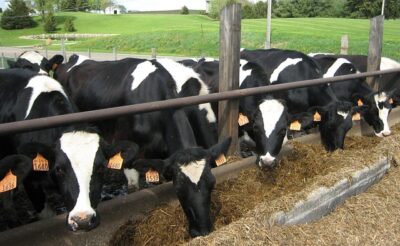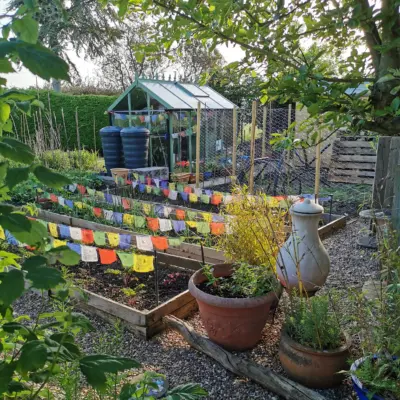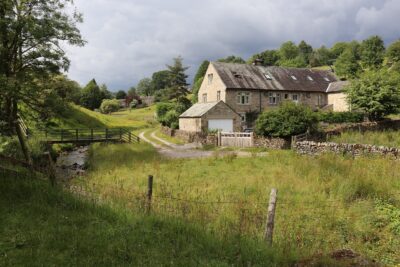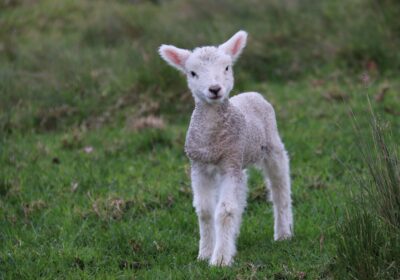The Problems with Industrial Farming
Over the past few decades, the transformation of farming from mixed farms to large-scale monocrop farms has resulted in negative impacts on local communities, health, and the environment. These modern and industrial practices have depleted our topsoil, and farmers have lost control over their farming practices.
Diversifying to Meet Community Needs
The People’s Food & Farming Alliance believes that now is the time for farmers and producers to directly supply to their communities by working together and considering a cross-section of produce to meet their nutritional needs. The alliance encourages farmers to take back control of national food production and sovereignty.
The PFFA Solution
The People’s Food & Farming Alliance is here to offer solutions and engage with communities to support local farmers and producers. The alliance is focused on connecting with local farmers who understand the need for change and are ready to take control of their farming practices. With the help of community ambassadors and partners, PFFA is committed to bringing change and supporting farmers in their efforts to diversify and meet the needs of the local community.
Practical Farming for a Fairer Agriculture
At PFFA, we believe in working together to create a fairer agriculture for all. Here are some of the ways we encourage farmers and growers to get involved.
Collaboration
We urge farmers and producers to join forces with local communities and other growers in their area. This will promote better communication and planning for future crops and breeding. It will also help ensure a variety of goods, including protein, produce, fruit, meat and dairy, for the local community. Get in touch with your community to find others who can help organize and communicate on behalf of farmers and producers.
Diversification
At PFFA, we advocate for diversifying instead of specializing in just one product. We encourage farmers to consider mixed farming, which provides a safety net in case of poor yields in one particular product, and offers multiple routes to market and variety for the community and consumers. We’re here to help farmers looking to diversify, connecting them with others and helping to introduce new stock or crops to expand their offerings. Land, housing, equipment and storage must be taken into account. PFFA will support the transition by establishing regional connections and buying groups, promoting diversification on every farm.
Harvesting
We encourage farmers to think ahead and plan for a scenario where oil or fuel prices are high and could pose problems during harvest time. How can farmers work with the local community to support the process if tractors and harvesters become too expensive to operate? Could manual labor be an option? By working together, we can start tackling these practical issues and encourage farmers to decrease the size of their fields, offering more planting and harvesting options. An increase in hedgerows also benefits natural pest control and manageable planting and harvesting.
Feed
At PFFA, we aim to help farmers become more self-sufficient. That’s why we encourage farmers to grow their own feed and fodder. Our accreditation initiative, coming soon, will support farmers in this endeavor. We also support mobile feed mixing businesses to grow, develop, and educate. PFFA is creating education centers and support for feed mixers and mobile butchers, as self-sufficiency is increasingly important. To assist farmers, we need to simplify their lives and shift control away from BigAg and big feed suppliers.
Seed
We urge farmers and producers to buy heirloom seeds from UK suppliers and adopt traditional growing and seed saving methods. We also encourage local communities to grow and save their own seeds and swap with other regions for diversity. Seed sovereignty is about having control over your seeds, producing, saving, and exchanging them freely. PFFA will connect with UK seed producers to support the growth and independence of seed merchants who support UK farmers and producers.
Butchery
PFFA is launching an initiative to support mobile butchers and educate and develop more local and regional mobile butchers. Our goal is to build a network of mobile butchers to lower costs and ease local distribution, while also assisting farmers to communicate and plan seasonal requirements with their local community. By bringing mobile butchers to the yard, we can increase control over the animal care and the freshness and quality of the meat provided to local communities, while also boosting the value of the product and reducing the costs of intermediaries.
One seasoned farmer, who has been supplying direct to his local community for many years, is Julian Rose, from the Hardwick Alliance. He offers us the following;
“The Proximity Principle Uniting Local Farmers and local Buyers – The Imperative of Our Time Independent small and medium sized farms have been handed a death sentence by Klaus Schwab head of The World Economic Forum. Schwab, and fellow architects of top-down control, have officially let it be known that under the policy known as ‘Green Deal’ traditional family farms are no longer wanted and the foods they produce are to be replaced by robotic, laboratory and genetically engineered lookalikes. This policy is spelled-out in the pages of Klaus Schwab’s book ‘The Great Reset’. The British government and the European Commission are committed to adopting this insane agenda as part of a so called Global Warming mitigation crusade. When properly analysed, this is revealed as a totalitarian programme for complete corporate and banking control of the food chain.
What Are We Going to Do About It? There is a very straight forward answer to this question. We are going come together at the local level and launch a mutually supportive initiative which will guarantee both the farmer and the purchaser of the farmer’s food a fair and beneficial exchange, ensuring each will benefit in the best possible way. How does it work? Very simple. The purchaser (consumer) approaches his or her local responsible farmer or vegetable grower and asks to buy some fresh produce. The farmer considers this proposition. Some may decline, but this will be because it has not occurred to them that the future of their current dependency on a corporate controlled marketing regime is completely untenable under the programme proposed by Mr Schwab.
Any good farmer will not turn down an opportunity to do business with neighbours in search of positive value for money, genuine farm raised foods, once they realise that the future of successful marketing depends upon establishing a market place amongst those in the immediate vicinity of his/her farm. Those who do not wish – or cannot any longer – purchase their staple food requirements from corporate owned super and hyper market food chains.
The Savvy Farmer
The savvy farmer can see the writing on the wall. Can see that slavery to a system of national and global manipulation – totally out of his/her hands – is a receipt for disaster. Such a farmer will be on the look-out for a secure local market; one where purchasers want to buy direct from the farm with no middle-man taking a cut. This must be the way forward if a secure future on the land is the desired outcome. Any intelligent farmer will recognise this and will take seriously a bona fide request to supply farm raised produce to those eager to buy it.The Savvy Consumer
The savvy consumer will be looking for fresh, healthy, flavourful pro ecological foods upon which to raise their family, or simply to feed themselves. They will recognise that the chance to acquire such food ‘direct from the farm’ represents the best possible outcome. A bond built-up with a local farmer/grower, via regular purchasing of their farm raised products provides a powerful ally for times ahead when the commercial food chain is subjected to the brutal intervention of the architects of global control and shortages become the norm. Such times are no longer speculative. They are on our doorstep.The Savvy Farmer and the Savvy Consumer – getting together
Either the consumer or the farmer can can take the initiative of bringing both parties together. How? Call a ‘round table’ meeting in the local village/town hall or just in your home. Around that table will be a number of purchasers eager to establish a relationship with local farmers and ready to contract them to grow the staple foods they require. Food grown without recourse to toxic chemicals/pesticides.Farmers need a secure income and the buyers a secure local source of nutritious food. Fair prices for both parties and delivery or ‘pick-up from the farm’ can be negotiated in a friendly and informal manner. This is not purely ‘business’ in the old sense of the term; it is a common bond being formed in a time when such bonds have been tragically neglected and supermarket convenience cultures have destroyed the links that hold communities together. A new trading, bartering and sharing agenda will be built around the adoption of this ‘proximity principle’.
This is the one sure way of effectively resisting the Klaus Schwab farm killer and the New World Order plan for global domination of the food chain. Let’s do it!
Other ways of supporting local farmers
Julian Rose
farm shops, farmers markets, box schemes, food cooperatives. Get onto the front foot and regenerate your community!”
It is time for We The People to start taking back control of our food supply. We have inadvertently handed this power over to global governments, BigAg, and many sizable industry controllers who now can use this power to control all food production and farming across the world.
THIS is our moment to take back that control, become far more self-sufficient on a local scale, and to nurture and heal ourselves, the environment around us and our soil, without the need for government handouts, supermarket dictats and low-nutrition rubbish food being placed in our path. Let us work together, let us work with nature and let us find ways through this transition that support abundance and wellbeing. For The People, By The People.




